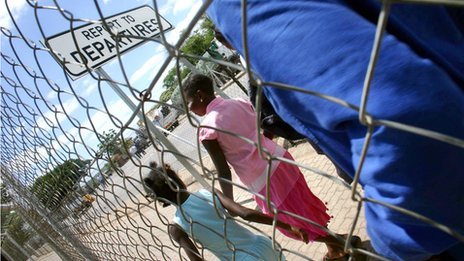By Brian Lanciault
Impunity Watch Reporter, Asia
BEIJING, China–China responded to criticism Thursday, and announced that it would increase its aid to the Philippines in the wake of Typhoon Haiyan. Some Chinese bloggers have called for no help at all.

The two countries remain knotted in a longstanding dispute over islands in the South China Sea, which Beijing claims almost in its entirety. Manila has accused Beijing of aggressively asserting its claims and says Chinese vessels have occupied the Scarborough Shoal, which Manila has claimed as its own since last year.
China, enjoying an almost decade long economic boom, announced a $100,000 cash donation on Monday. The donation was to be matched by the Chinese Red Cross. The sum of $200,000 is far less than other countries, and sparked intense criticism overseas. It also stands in sharp contrast to China’s other recent donations: over $10 million for Japan in the wake of its tsunami two years ago and almost $40 million for countries affected by the 2004 Asian tsunami.
The amount would be low even if China, the world’s second largest and fastest growing economy, were a much smaller or poorer nation: Malaysia, population 29 million, has pledged $1 million in cash, as well as food aid; New Zealand, population 4.4 million, has pledged another $1 million.
The US magazine Time reported Wednesday under the headline “The world’s second largest economy off-loads insultingly small change on a storm-battered Philippines”.
“The Chinese government has been made to look mean-spirited in front of the world community,” said the article.
Foreign ministry spokesman Qin Gang said Thursday that the country decided “just days ago” to provide an additional 10 million yuan ($1.6 million) for relief efforts in the form of blankets, tents and other materials.
“There will be thousands of tents and tens of thousands of blankets,” he told reporters.
“We hope that these supplies will be delivered to the disaster-stricken areas as soon as possible to show our sympathies with the Philippines.”
Typhoon Haiyan swept through the central islands of the Philippines Friday, leave mass destruction in its wake.
Chinese media and Internet users — many of whom are intensely nationalistic — were divided on how the country should respond to the disaster.
“If (the Chinese government) was generous to the Philippines, it would hurt the Chinese people completely,” wrote a user of Old Beijing on Sina Weibo, the Chinese equivalent of Twitter.
Another user said: “I think what China has done was rational — facts have long showed the wickedness of the Philippine regime. It will not be grateful even if we hand them much money. Instead, it could use the cash to buy weapons from the US to attack us.”
Others argued that China was a victim of the storm itself, and had its own disaster relief needs at to be concerned with.
The typhoon brushed three provinces and regions in south China this week, leaving at least 13 dead or missing and 252,000 people displaced, according to the latest data.
Nevertheless some experts warned that it was not in China’s best interests to minimize its humanitarian aid to the Philippines, particularly with the international community heavily scrutinizing every move the economic giant takes.
“A country’s status on the world stage does not only rely on its economic and military strength. It is also determined by how much soft power it can master, which includes its approach to humanitarianism,” said a commentary in the state-run Global Times.
Qin attempted to diminish the value of the online nationalist sentiment, saying that an “overwhelming majority” of Chinese people “understand and sympathize with the sufferings of the Philippines”.
For more information, please see:
BBC News– China’s Phillippine aid controversy — 14 November 2013
ABC News– In Phillippine Relief Effort, China Beat by Ikea — 14 November 2013
Reuters– China says people sympathetic about Phillippines, online criticsm unrepresentative — 14 November 2013
Quartz– China’s paltry response to Typhoon Haiyan illustrates the limits of its soft power — 13 November 2013
Global Post– China to step up aid to Phillippines amid controversy — 14 November 2013


